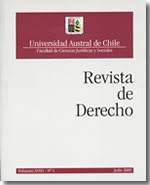Parity democracy: from theory to practice
Main Article Content
Abstract
The scarce political participation of women is no longer anecdotic. It is now considered to be one of the gravest problems that current democracies must confront to legitimate themselves. This deficit has prompted the coining of the concept of parity democracy, articulated under the influence of different trends of feminism. The debate on parity has oscillated between arguments based on essentialist conceptions of genders to those grounded on more universal theories and that conceive parity as a tool for the radicalization of equality. This paper refers to some of these perspectives. At the same time, this conceptual development has had a clear counterpart in international law, which has hesitantly taken these guidelines, as it is inferred from the legal analysis of this paper’s second part.

